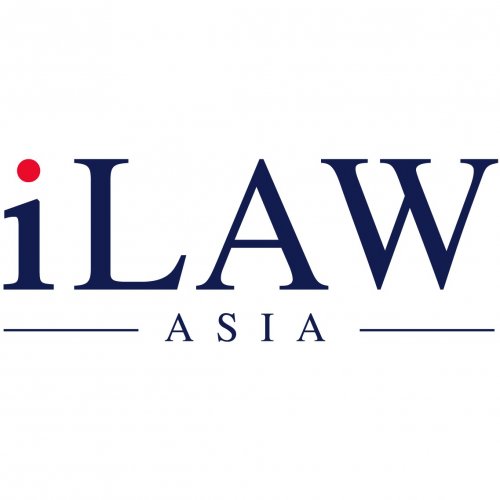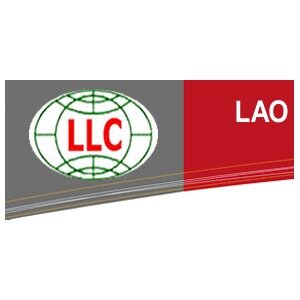Best Tax Increment Financing Lawyers in Vientiane
Share your needs with us, get contacted by law firms.
Free. Takes 2 min.
List of the best lawyers in Vientiane, Laos
About Tax Increment Financing Law in Vientiane, Laos
Tax Increment Financing (TIF) is a public financing method used to subsidize infrastructure, community improvement projects, or other economic development initiatives. In Vientiane, Laos, TIF is implemented to promote urban redevelopment and infrastructure improvements by utilizing the future increase in property taxes to fund current projects. It allows municipalities to target specific areas that require development by channeling the additional tax revenue generated by increased property values within the designated area.
Why You May Need a Lawyer
Considering the complexities of Tax Increment Financing and its long-term implications, seeking legal advice is crucial in several situations:
- If you are a property owner or developer interested in areas designated for TIF projects.
- When planning to engage in public-private partnerships under TIF schemes.
- If you require clarification on obligations and entitlements under a specific TIF contract.
- To understand the implications and potential tax liabilities associated with TIF agreements.
- If you are affected by proposed changes or developments within a TIF district.
Local Laws Overview
Tax Increment Financing in Vientiane is governed by regional development laws allowing municipalities to establish TIF districts for promoting economic activities. Key aspects of these laws include:
- Approval Process: TIF districts require approval from municipal authorities, outlining objectives and expected outcomes.
- Eligible Projects: TIF can be used for public infrastructure improvements, land acquisition, and brownfield remediation, among others.
- Funding: Projects are financed through bonds, which are repaid from the increased property tax revenue within the TIF district.
- Regulatory Compliance: TIF agreements must comply with national tax regulations and urban development policies.
- Impact Assessment: Prior to approval, impact assessments are usually conducted to ensure community benefits and environmental sustainability.
Frequently Asked Questions
What is a Tax Increment Financing (TIF) district?
A TIF district is a designated geographic area where public financing methods are applied to encourage investment and economic growth through the use of increased property tax revenues generated by expected improvements.
Who can apply for TIF in Vientiane?
Both public and private entities, such as municipal authorities and private developers, can propose or apply for TIF to support their development projects within Vientiane.
How does TIF benefit property owners?
TIF can increase property values by enhancing public infrastructure and services, thereby potentially increasing tenants' attractiveness and foot traffic for commercial properties.
What projects qualify for TIF funding?
Projects that qualify typically include infrastructure improvement, economic development initiatives, revitalization of underused land, and public projects that encourage economic investments.
How is the TIF revenue generated?
The revenue is generated through the increase in property taxes resulting from the rise in property values within the TIF district. It is then used to repay any incurred debt and fund the development projects.
Can residential developments use TIF?
Yes, residential developments that contribute to improved urban density, affordable housing, or public well-being can qualify for TIF.
What is the timeframe for a TIF agreement?
A typical TIF agreement may last for 15 to 30 years, allowing sufficient time for investment returns and infrastructure completions.
Are there any risks associated with TIF?
Risks include potential failures to achieve projected tax increments, delayed or unmet development goals, and impacts on local government budgets if revenues do not meet expectations.
How are TIF plans approved?
TIF plans are approved by municipal authorities after reviews, public consultations, and evaluations concerning projected benefits and impacts on the community.
What happens at the end of the TIF period?
At the end of the TIF period, the increased tax revenue is distributed like any other property tax income and used to fund general government services or initiatives.
Additional Resources
For additional assistance on Tax Increment Financing, consider these entities:
- Ministry of Finance, Laos: Provides regulations and guidelines concerning TIF practices.
- Vientiane Urban Development Administration Authority: Offers support and information on urban development policies, including TIF.
- Legal advisory firms specializing in real estate and tax law within Vientiane can provide in-depth legal support.
Next Steps
If you require legal assistance in Tax Increment Financing, consider the following steps:
- Consult with a lawyer specializing in tax or real estate law to discuss your specific case and options.
- Research local law firms or legal advisers with a proven track record in handling TIF cases in Vientiane.
- Prepare any relevant documents or questions in advance of your legal consultation to ensure a comprehensive assessment.
- Consider attending workshops or seminars on urban development and financing methods put on by local authorities.
Lawzana helps you find the best lawyers and law firms in Vientiane through a curated and pre-screened list of qualified legal professionals. Our platform offers rankings and detailed profiles of attorneys and law firms, allowing you to compare based on practice areas, including Tax Increment Financing, experience, and client feedback.
Each profile includes a description of the firm's areas of practice, client reviews, team members and partners, year of establishment, spoken languages, office locations, contact information, social media presence, and any published articles or resources. Most firms on our platform speak English and are experienced in both local and international legal matters.
Get a quote from top-rated law firms in Vientiane, Laos — quickly, securely, and without unnecessary hassle.
Disclaimer:
The information provided on this page is for general informational purposes only and does not constitute legal advice. While we strive to ensure the accuracy and relevance of the content, legal information may change over time, and interpretations of the law can vary. You should always consult with a qualified legal professional for advice specific to your situation.
We disclaim all liability for actions taken or not taken based on the content of this page. If you believe any information is incorrect or outdated, please contact us, and we will review and update it where appropriate.













